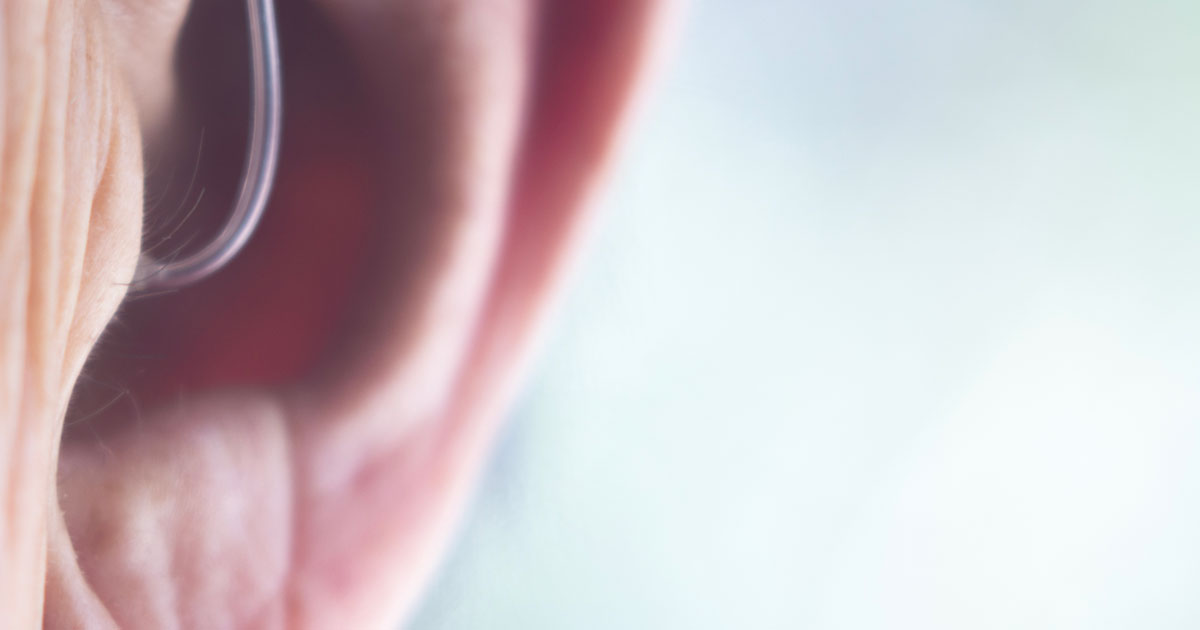By LAURA FRIEDMAN
As my three-year work anniversary approaches, I’ve been reflecting on my learnings as a team member of Hearing Health Foundation (HHF).
One thing sticks out the most: As someone who has only known her life as being one with hearing loss and wearing hearing aids (I was diagnosed at age 3 ½), I don’t know what I’m missing, compared with my typical hearing peers.
I have learned from those who have acquired hearing loss later in life, even as young adults, that they are acutely aware of the difference in their hearing experience, even with assisted listening devices.
They aren’t enjoying music like they once did, they have increased difficulties hearing conversational speech around the dinner table and at restaurants, and they are missing things in meetings that the “old” them would never miss.
Ok, I lied. There are actually two major learnings. The second is, which is something I’ve experienced within my own family, the prevalence of hearing loss denial and the resistance to treating one’s hearing loss. If one were to wish hard enough, maybe by sheer willpower their hearing loss will no longer impact them as much as they’ve been told by their doctor or loved ones.
Hearing Loss Part of Aging
For some, this is resisting the body’s natural aging process; for others it is too overwhelming to think they are less able to do something that used to be second nature to them. For those who do acknowledge their hearing loss, many do not wear their hearing devices, further isolating them from a world they were previously a part of.
As a young child when I visited my grandfather, who was notorious for not wearing his hearing aids, I told him, “If I have to wear mine, you have to wear yours!” He would give me his signature smirk and appease his assertive (and correct!) granddaughter. But I knew once I left, back in the drawers those hearing aids went.
I recognize denying the existence of an ailment or resisting treatment is not unique to hearing loss; this is true for many people diagnosed with other serious and life-changing conditions.
However, when it comes to hearing loss, almost one-third of an estimated 40 million U.S. adults with hearing difficulties haven’t even taken the first step to see a specialist for help.
What’s even more troubling is today it is estimated that 360 million people worldwide have hearing loss, with 1.1 billion people at risk for acquiring it, according to the World Health Organization.
In the U.S., nearly 25 percent of those aged 65 to 74, and half of those older than 75, have a disabling hearing loss. An even more astounding fact is that over 70 percent of adults in the U.S. who have hearing loss and who would benefit from a hearing aid don’t have one.
A Hearing-Loss Epidemic
Hearing loss is truly an epidemic, and it seems to be getting worse.
Studies have shown that even untreated mild to moderate hearing loss is linked to increased levels of loneliness and isolation, depression, dementia, and medical conditions like heart disease and diabetes. It can even hurt earning potential and career mobility.
Treating hearing loss can significantly offset and decrease the risk of acquiring these consequences. So the question is, if treating hearing loss deters the onset of detrimental health conditions, why aren’t more people taking preventative measures to protect their hearing or taking actionable steps to treat it?
For those in the U.S. there is unfortunately little to no insurance and Medicare coverage for hearing aids, meaning those who need them most are unable afford them. While there’s still a lot left to do, policy is slowly moving in the right direction: In August 2017 the Over-the-Counter Hearing Aid Act was signed into law, paving the way for a new class of hearing aids to enter the marketplace.
This will provide greater access to hearing technologies for those with mild to moderate hearing loss at a fraction of the price.
I can’t imagine how frustrating it must be to know what you’re missing; it is my wish that nobody has to experience that feeling. This is why I chose to work for an organization dedicated to funding research to develop better technologies, therapies, and cures for hearing and balance disorders.
Discoveries are the only way to better the listening experience of those with hearing loss and bring more options to the market. Furthermore, if more people choose to treat their hearing loss, I truly believe it will decrease the stigma and discrimination felt by many, like myself, who have hearing loss.
Since I already told you I’m assertive, I ask you to do this one thing: Get your hearing tested and encourage your friends and loved ones to do the same. If necessary, treat your hearing loss.
Treating hearing loss has been a life-changer for me as well as for millions of others around the world who choose to tune in, ultimately benefiting our health, work, and life.
Laura Friedman is the Communications and Programs Manager of Hearing Health Foundation (HHF), the largest nonprofit funder of hearing and balance research in the U.S. Learn more about HHF’s mission to prevent, cure, and treat hearing loss and educate about hearing health at hhf.org.











